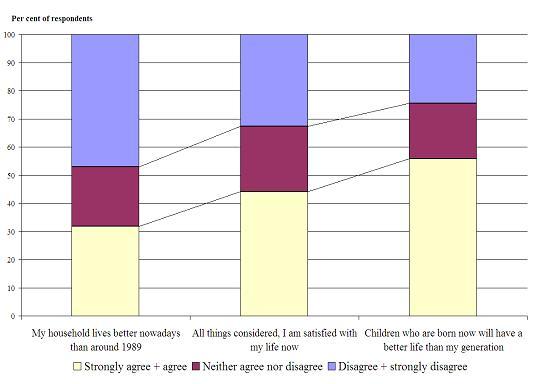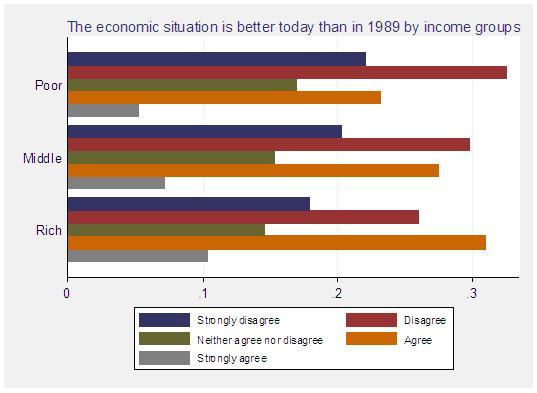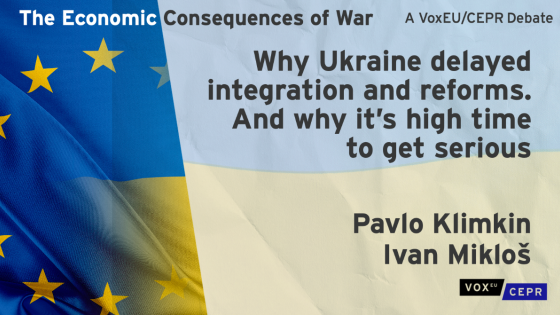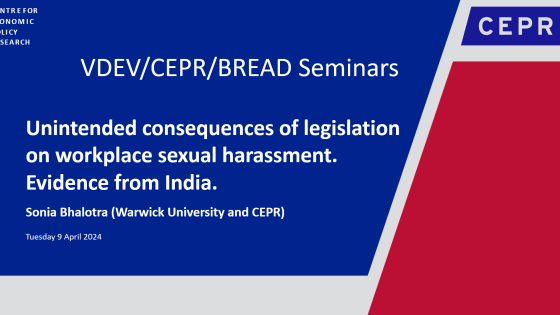Central and Eastern Europe are catching up with the rest of Europe. Growth rates are higher than ever since transition started. Remarkable improvements over the last 15 years have moved institutions much closer to those of Western Europe. These striking transformations have been propelled by a widely shared desire to come “back to Europe.”
Yet the other side of this positive aspiration is a fear of being “left behind". Several of these countries have for centuries been confined to the economic backwaters of Europe. When the prospect of EU accession opened up, many of them worried that geography and politics, or simply their initial level of income, would preclude their joining the European club. But as long as membership was a realistic prospect, this anxiety motivated applicants to try even harder.
This same fear of being left behind is once again resurfacing, now in the context of accession to the Euro-area. All new EU members have applied for membership. But this time, success seems more elusive, and worries about exclusion more likely to materialise. Inflationary pressures from rapid growth, plus the incumbents’ strict interpretation of the Maastricht criteria, have combined to make membership an increasingly remote possibility. As this realisation dawns on the region, incentives are being seriously undermined.
The exclusion from the Euro zone is further aggravated by another fear of being “left behind” – among individual groups that have lost out in the process of transition. Because of age, lack of education, and location, large segments of the population in Central and Eastern Europe have been unable to reap the benefits of economic growth. As a result, the consensus about the ultimate objective of institutional reforms and the associated sacrifices – so important during the process of EU accession – is beginning to fray.
A recent survey conducted by the EBRD in collaboration with the World Bank provides further insight into the political sentiments. The Life in Transition Survey combines a traditional household survey of objective living conditions with a study of subjective well-being and attitudes. The purpose is to better understand how people perceive the achievements and failures of transition to date.
The results are at once disturbing and reassuring. On one hand there is wide-spread discontent with current conditions and some longing for times past, yet most people are convinced that their children will have a better life (most people in Western Europe do not think so), as Figure 1 shows. But the most striking observation is the variation across different groups. Older people, along with the less educated, and people living in rural areas and provincial towns are more critical and more anxious about current conditions. Figure 2 shows the details.
A recent study for the European Commission of the skill composition in labour markets in the new member states confirms popular fears. The big losers of transition are those with only primary education, individuals who are also more likely to be older and live outside the main metropolitan areas. For the young and highly educated, the same study shows a tightening labour market with rapidly increasing wages.
Unfortunately, disenchanted groups are now easy prey for populist or retro-oriented politicians promising compensation from strained government budgets and regained self-respect through moralistic examinations of past injustices. In country after country, political malaise is undermining fiscal restraint and the political will to pursue further reforms.
These findings suggest a need to look more broadly at the social and economic factors determining the sustainability of policies. Areas such as health care and education are obviously important and, given the strained government budgets, may need creative approaches that draw on private sector initiative. The European Commission and development organisations like the EBRD can support implementation and enforcement of the difficult remaining reforms in the public sector. Possibly, outside institutions can also play a role in promoting transparency of decision-making, particularly at the local level, through participation in investments in infrastructure and public services.
But ultimately, the pressure for further action must come from within. Significant investments are needed in physical infrastructure, but even more so healthcare and education. While the “fear of being left behind” helped initiate and sustain reforms in the earlier phases of transition, this same fear now jeopardises the sustainability of growth and institutional change. Individual countries’ anxiety about missing out on Europe are merely reinforced by the fears of important groups in their societies.
Fear tends to trigger either myopic action or, perhaps worse, paralysis – it is not a sound driver of social and economic transformation. We should move beyond using Euro-area membership as a lever for change. Our most useful support would be to engage the peoples of Central and Eastern Europe in a broader development project that responds to their anxieties and concerns, and appeals to their aspiration to become truly equal citizens in the European experiment.
Figure 1: Views about the transition process
Figure 2a: The economic situation is better today than in 1989, by age groups
Notes: Young = <35; Adult = 35-50; Middle age = 50-65; Old = >65
Figure 2b: The economic situation is better today than in 1989, by income groups
Notes: Poor = poorest third; Rich = richest third
Figure 2c: The economic situation is better today than in 1989







